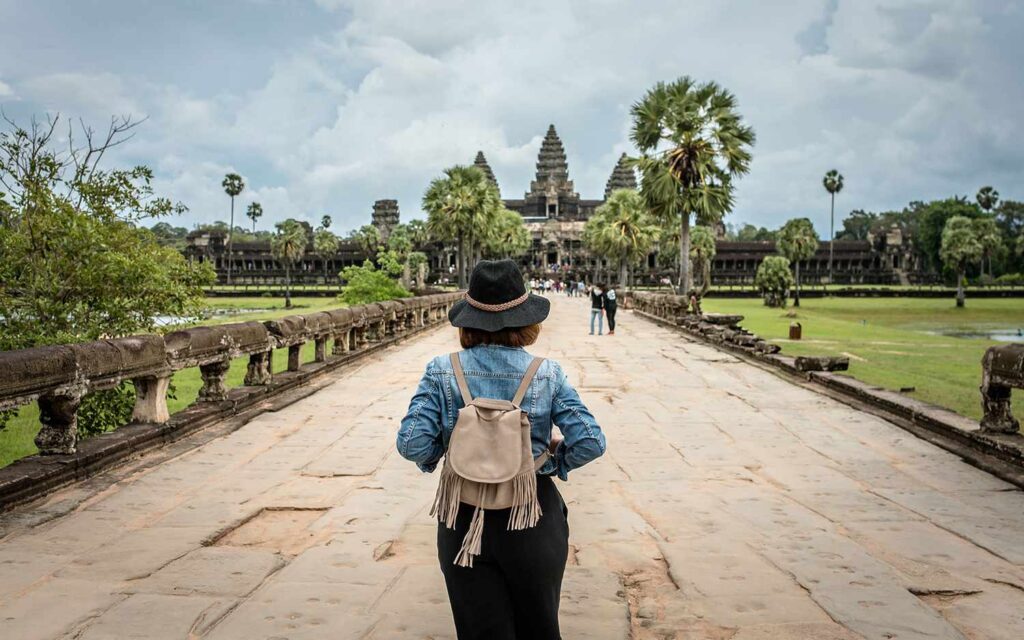Solo travel is more than just a journey to distant places; it’s a profound exploration of oneself. When you embark on a solo adventure, you step into a realm where independence reigns supreme. It’s a liberating experience where every decision, from choosing destinations to navigating foreign streets, rests solely on your shoulders. The freedom found in solo travel transcends the physical act of moving from place to place. It’s about the mental and emotional liberation that comes with embracing solitude and self-reliance. In the midst of unfamiliar cultures and landscapes, you discover the depths of your own resilience and resourcefulness. Challenges become opportunities for growth, and uncertainties transform into moments of self-discovery.
Moreover, solo travel fosters a profound sense of empowerment. Making decisions based solely on personal desires and interests allows for a deeper connection with one’s innermost desires and aspirations. It encourages self-reflection and introspection, creating a space for personal growth and transformation. Beyond the practicalities of navigating airports and booking accommodations, solo travel opens doors to meaningful encounters and connections. Without the safety net of companionship, you’re more likely to engage with locals and fellow travelers, forging friendships that transcend cultural boundaries.
Solo travel serves as a profound catalyst for self-discovery and personal growth. When you embark on a journey alone, you step into an environment where self-reflection becomes inevitable. Away from familiar surroundings and routines, you’re prompted to confront your own thoughts, desires, and fears in ways that daily life often masks.
The process of navigating new places and cultures solo requires a heightened awareness of your surroundings and an increased reliance on your own judgment and intuition. These challenges provide fertile ground for learning more about your strengths, limitations, and preferences. Each decision you make—from choosing destinations to interacting with locals—becomes an opportunity to gain deeper insights into your values and aspirations.
Moreover, dining expenses can be managed more efficiently when traveling solo. With no need to accommodate varied tastes or preferences, solo travelers can choose affordable dining options such as local eateries, street food, or self-catering facilities, which are generally more economical than upscale restaurants catering to larger groups. Transportation costs also tend to be lower for solo travelers, as they can take advantage of single tickets or smaller rental vehicles rather than larger ones that would be required for groups.
Solo travel empowers individuals with the autonomy to make decisions that shape their journey in profound ways. Unlike traveling in groups where decisions are often negotiated or compromised, solo travelers have the freedom to craft their itinerary according to personal interests and preferences.
This autonomy extends beyond choosing destinations and activities; it encompasses every aspect of the travel experience. From deciding where to stay and how long to linger in a particular place, to selecting dining options and navigating local transportation, solo travelers have the liberty to prioritize what matters most to them without the need for consensus. This empowerment through decision-making fosters a deeper sense of self-reliance and confidence. Handling challenges and uncertainties alone encourages travelers to trust their instincts, problem-solve creatively, and adapt to changing circumstances with resilience. These experiences not only enhance practical skills but also cultivate a greater understanding of personal strengths and capabilities.
Solo travel offers a unique opportunity to prioritize self-care and personal preferences without compromise. When traveling alone, individuals can focus entirely on their own needs, desires, and interests, creating a journey that is tailored to their personal growth and enjoyment.
One of the key benefits of prioritizing oneself during solo travel is the ability to set and adjust one’s schedule according to personal rhythms and interests. There’s no need to accommodate others’ preferences or compromise on activities that may not align with individual tastes. This autonomy allows travelers to explore at their own pace, linger in places of personal significance, or spontaneously change plans without external constraints. Moreover, solo travel encourages a deeper connection with oneself. Away from familiar environments and routines, individuals have the space and freedom for introspection and self-reflection. This can lead to valuable insights, personal growth, and a heightened sense of self-awareness.
Traveling alone fosters an environment where individuals are naturally inclined to engage with new people. The absence of familiar faces encourages solo travelers to reach out, whether it’s striking up a conversation at a cafe, joining a local tour, or simply bonding over shared experiences at a hostel. These interactions often unfold more organically, free from the dynamics that can sometimes inhibit socializing in larger groups.
Moreover, solo travelers are often perceived as more approachable by locals and other travelers alike. This openness can lead to invitations to join activities, explore hidden gems off the beaten path, or participate in cultural events that may not be as readily accessible to larger groups. These shared moments of exploration and discovery can create bonds that transcend geographical boundaries and cultural differences.












